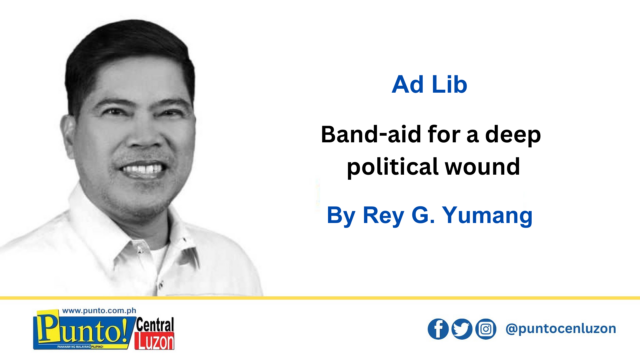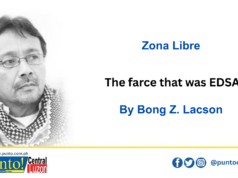DANGEROUSLY SIMPLISTIC. This is exactly what I feel about Sen. Allan Peter Cayetano’s proposal that all elected officials resign and the country hold a snap election.
His suggestion may be good enough for dramatic headlines, yet it would never by itself, root out graft, expose the full truth behind the anomalous flood-control projects, or restore the Filipino’s faith in governance and trust in their leaders.
First, the proposal is constitutionally dubious and logistically implausible. The 1987 Constitution provides no mechanism for mass resignation or a nationwide snap poll beyond the presidency. In a report from the Philippine Daily Inquirer, retired Supreme Court Justice Antonio Carpio has warned that the Philippine Constitution does not clearly allow for such a wholesale dissolution of elected offices outside the regular electoral timetable.
The Commission on Elections itself admits that organizing a full national election outside the regular cycle would be near impossible within the year. Even the Senate has formally rejected Cayetano’s idea, noting that such would only aggravate political instability.
More importantly, a snap election will not automatically cleanse the system. Corruption in the Philippines is not simply a matter of who sits in office—it is a matter of how the system allows impunity.
The ongoing Senate investigation into the DPWH flood-control projects reveals just how entrenched the rot is. Reports show that up to ₱1.089 trillion in flood-control allocations since 2023 may have been lost to fraud, ghost projects, and kickbacks. The Department of Finance estimates an annual loss of ₱118.5 billion to flood-control corruption alone.
Contractors have testified to paying as much as 25 percent in “commissions” to legislators for project approval. Obviously, this not just a leadership crisis—it is a moral and institutional one.
To truly regain public trust, officials must choose justice over theatrics. The Senate Blue Ribbon Committee must conduct an impartial, transparent probe—no sacred cows. Everyone involved, from DPWH officials to lawmakers, must face prosecution and imprisonment if found guilty.
Beyond this, Congress must finally pass long-delayed legislative reforms: Pass an Anti-Dynasty Bill to break entrenched political family control and open space for new voices. Enact a robust Freedom of Information (FOI) Law so citizens, journalists, and civil society can scrutinize plans, budgets, and bids in real time. Amend the Bank Secrecy Law to allow for investigation of unexplained wealth among public officials. Review the Party List System to prevent misrepresentation of the marginalized sectors by the wealthy and has-been politicians.
And for good measure, President Bongbong Marcos should settle his family’s unpaid estate taxes amounting to P203B, apologize to and compensate the families of the victims of human rights violations during his late father’s dictatorial regime, return his family’ ill-gotten wealth to the government, and advise his minions to stop all efforts at sanitizing history – a gesture so scintillating that it that would prove that accountability begins at the top.
The Filipino people do not need another election—they need justice, transparency, and leaders who honor the law they swear to uphold. Snap polls may change the players, but only truth and reform can change the game.
Collective resignation and snap polls are mere shortcuts that may fuel instability more than integrity. What our democracy needs is not a reboot—we need a reckoning: a prosecution, a reform, a renewal of institutions so that trust can be rebuilt on the bedrock of transparency, accountability, and justice.





